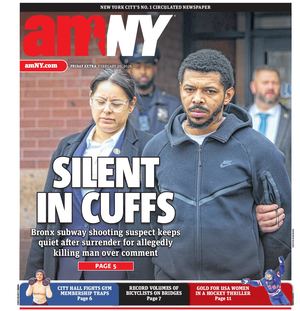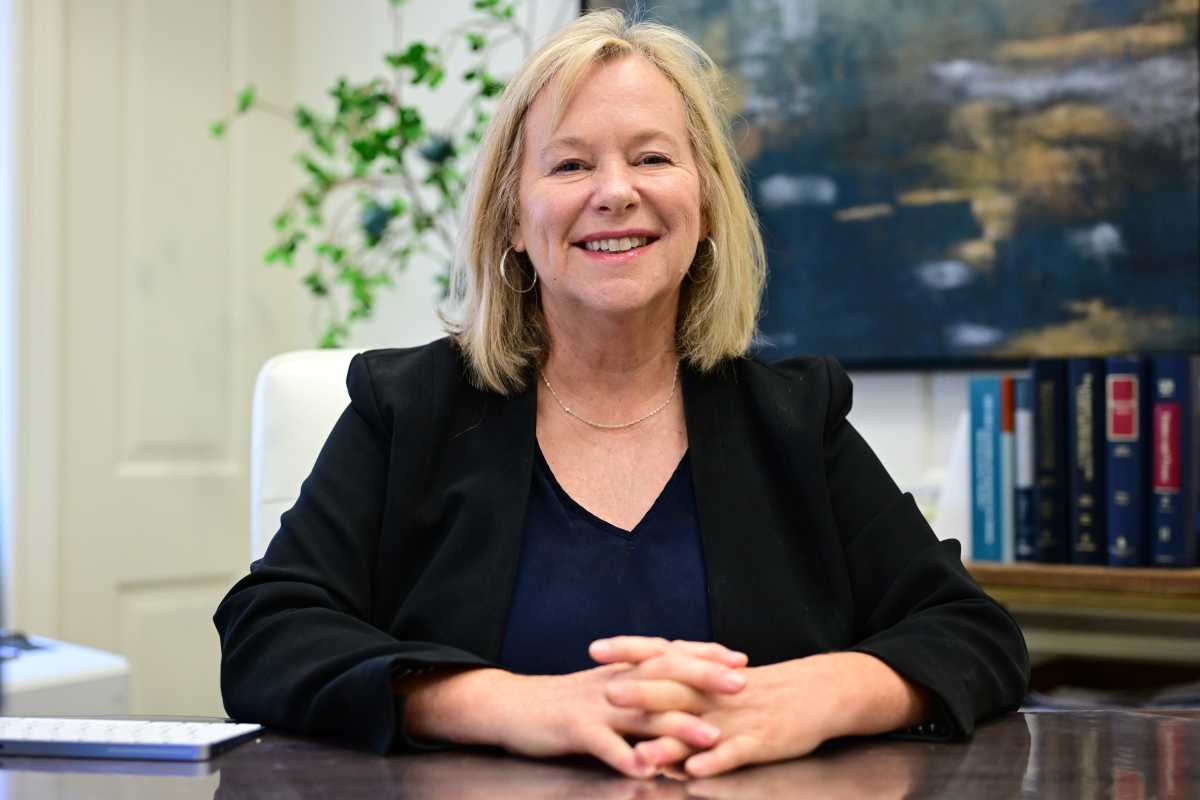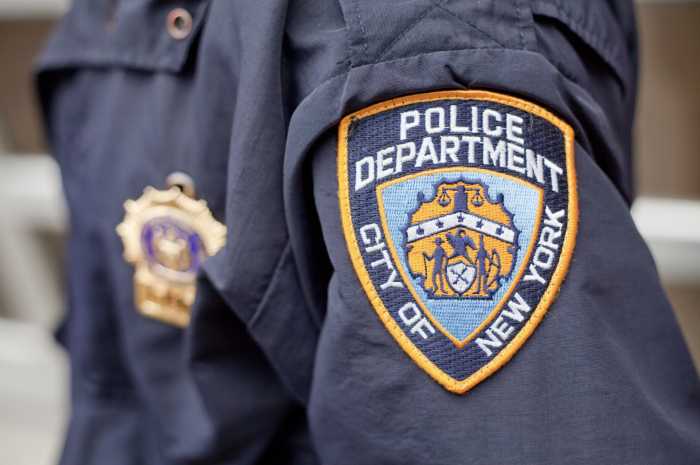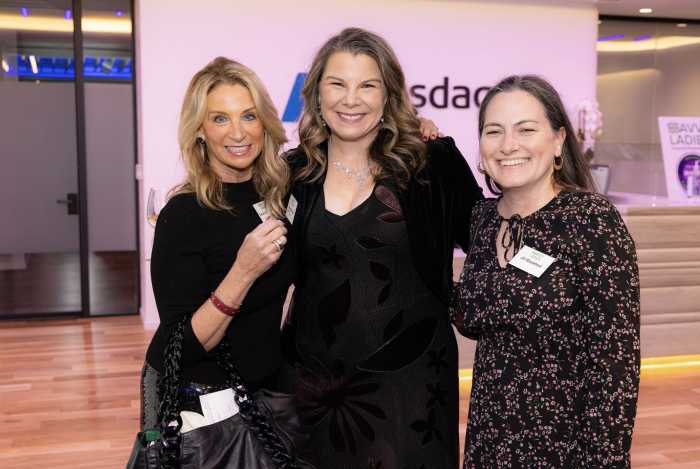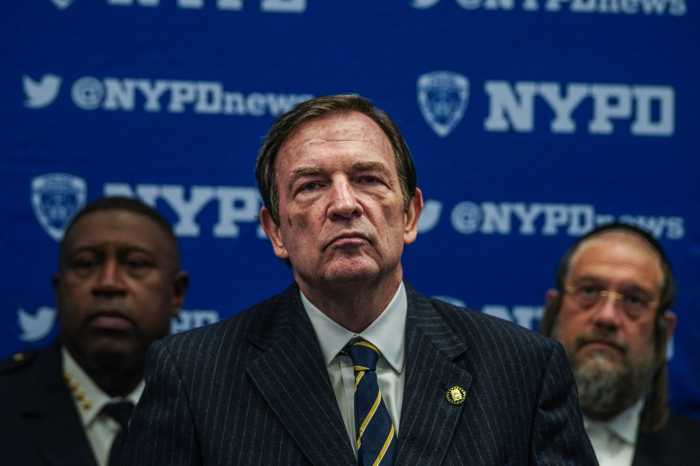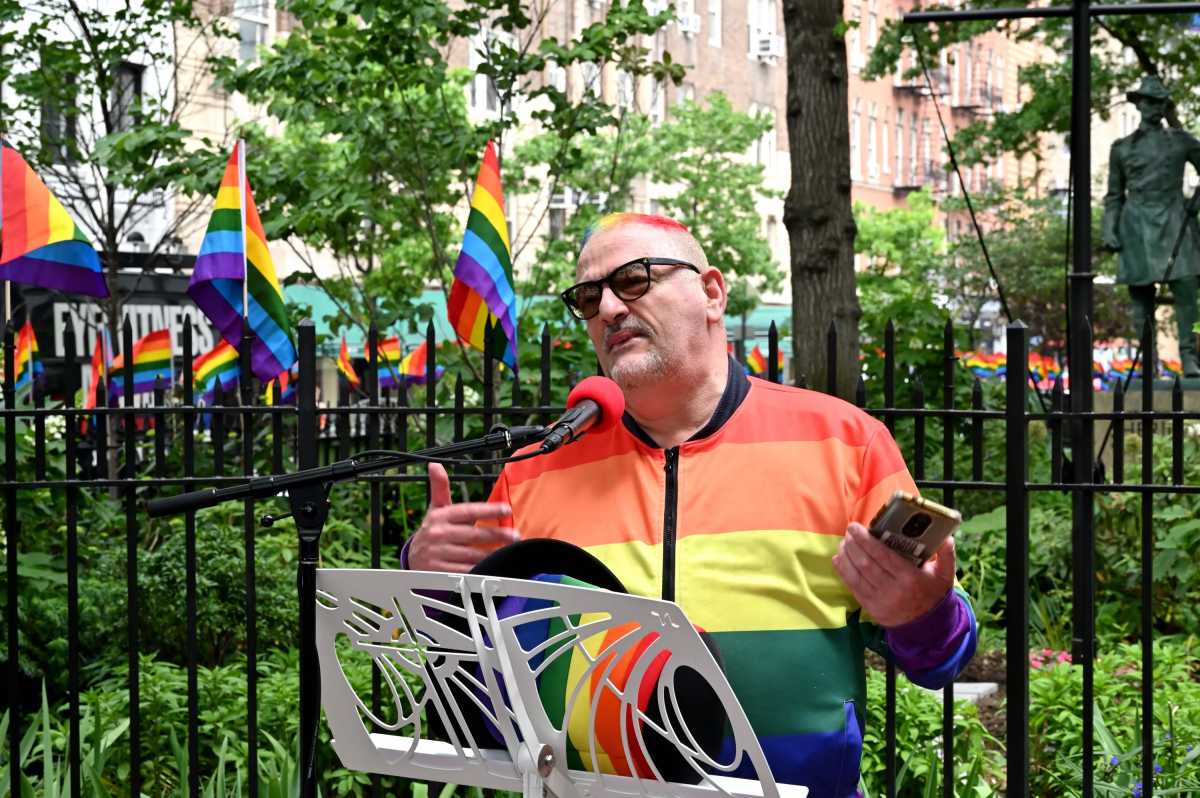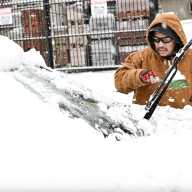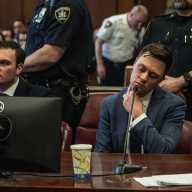When Cardozo Law School Dean Melanie Leslie took the reins of the institution, one of her first orders of business was to build a new consolidated film, music and fashion law program — an effort to unite the mentality of the business executive and the artist.
“It sounds really sexy, but you’re not likely to be going to the grammys for a very long time. You’re doing legal work. And to do that well, you have to understand the business, and you have to understand how creative people think,” Leslie said.
One source of her insight: Leslie herself came from the entertainment world. She moved to New York City with a dream of becoming an actor; and had a career that included roles in advertisements and soap operas as well as singing in a band before she turned to law school seeking more rigor and meaning.
It’s one of several ways that Leslie, the first Cardozo alumna to climb to the perch of dean, said her background has crucially shaped her approach to the job.
“I was drawn to Cardozo because of the kind of energy and incredible intellectual diversity of ideas. There’s always something happening here. I felt instantly at home,” she said, adding, “In addition to absorbing this important body of knowledge, it was also a period of real self discovery and growth.”
What Leslie sees in the school is a sense of community instead of a competitive pipeline into the industry. In boosting the school as a laboratory for individual development, she pushed back against the “big-law-or-bust” mentality as the only path to a meaningful career, stressing that the school aims to help each student find the job that is right for them.
To encourage this approach, Leslie has expanded the school’s reputation as a leader in intellectual property law, its clinics and its public service offerings over her 10-year tenure. That being said, she maintained that for those who come to the Lower Manhattan campus looking for opportunities at the city’s elite law firms, they can have that too.
“I think what’s important is to come to law school with an open mind,” she said. “We look for people and people are attracted to us because of this, who want to be part of something bigger than themselves, who don’t look at law school as ‘I’m competing against this guy and this guy, and I want better grades than that guy. ”
Cardozo, founded in 1976 by Yeshiva University, is one of the newer law schools in the country, and second newest in the city after CUNY Law. To this end, Leslie described Cardozo’s culture as having the “energy of a startup,” where the focus is on meeting the moment and not resting on past achievements.
“We’re growing now. All startups have to grow or they die. Those are your options. And we’re growing in terms of our structure and our size and the seriousness of the organization,” she said. “But we still retain that energy of being the new kids on the block.”
Cardozo developed its strong foothold in intellectual property law because its founders were some of the first to take this growing area of law seriously, Leslie said. This early focus, along with a strong network of successful alumni, has helped the program become a consistent top-10 program. The program has since expanded to include technology, communications and privacy law.
“We had large numbers of graduates who immediately became successful in those fields, creating a kind of pipeline into that industry,” she said. “And then we broadened, we kept broadening the scope of the program.”
In her own career Leslie practiced commercial litigation for several years and clerked in the New Jersey Supreme Court before coming back to Cardozo as a professor in 1995, where she developed her expertise in trusts and estates, fiduciary obligations and nonprofit governance.
Building on the strength of the IP program as dean, Leslie formalized a spinoff of fashion, art, music, and entertainment law, the FAME program (“We’re never sure if the m is music or media. Because it looks weird to have two M’s. F-A-M-M-E,” Leslie said). The program teaches students the business side of the creative industries through a speaker series featuring high-profile business executives like shoe mogul Stuart Weitzman, fashion designer Steve Madden and record executive Clive Davis.
The idea is to expose students to these industries through clinical training that takes advantage of the city as its petri dish. Students in the filmmakers’ legal clinic join forces with new indie filmmakers as they discover the unforeseen legal challenges that inevitably pop up in the course of filming. They tackle questions of how the filmmakers are going to incorporate their business, handle employment agreements and negotiate distribution agreements down the line.
“The FAME program is trying to teach them business because as a lawyer, to add value, you have to understand the business people,” Leslie said.
But the glitz of the school’s media offerings shouldn’t distract from its dedication to public service and social justice law, which has long served as a core of the school’s offerings. The nationally recognized Innocence Project, a legal nonprofit focused on preventing wrongful convictions, began at Cardozo within the Criminal Defense Clinic before spinning off into its own entity. Leslie said that she’s also focused on expanding the school’s footprint by adding a new immigration justice program and a criminal defense clinic on the death penalty.
The school has also proven itself quite nimble in adapting to changing legal trends. In response to ICE’s recent aggressive enforcement tactics, the law school created a new immigration program to provide training on habeas corpus rights, the law that protects people from being held in detention without a good reason. Asked about the politics of countering federal enforcement that critics characterize as a form of federal overreach, Leslie said the school has always been committed to reforming the legal system in the interest of justice.
“We don’t really think about it as political… We’re dedicated to training students to respect and stand up for the rule of law,” she said. “That’s what we’re doing. That’s what we’ve always done. It’s our job, and we think it makes our country stronger when you have people who can hold the system to account.”
Leslie connected the school’s dedication to public service with the financial burden of student loans, which she noted can deter students from pursuing careers in public service.
“I’ll tell you what the challenge is,” she said. “We need more people to go into public service law and they can’t afford to… So one of my fundraising objectives has been to get more and more money for scholarships for students.”
With a stunning 20 percent national increase in law school applicants this year, after the recent presidential election, Leslie didn’t venture to speculate what their interests are or to explain the rise in political terms, but the one thing she could say is that this cohort is older. Only about 22 percent of the incoming class is straight out of college, she said, “so that’s telling you that there are people in their twenties, who’ve worked for a couple years, or maybe in their thirties who are now saying, ‘I want to be a lawyer.’”
Though she was reluctant to discuss national politics directly, her tenure has run through an increasingly polarized period. Last year she got caught in campus crossfire as the school’s Federalist Society hosted a controversial talk by high-profile lawyer Alan Dershowitz, who has represented public figures such as President Donald Trump, O.J. Simpson and Jeffrey Epstein.. During his talk, Dershowitz railed against the principle of diversity, equity and inclusion. Leslie released a statement defending the school’s commitment to DEI, which then sparked public attacks from Dershowitz.
Leslie said that her hope in approaching campus political differences is to both strongly adhere to the principle of free speech while encouraging students to learn from their peers who think differently from them.
“Society right now is torn apart. People don’t listen to opposing points of view,” she said. “What I can try to do along with my faculty and the rest of my team is to model the behavior that I want them to adopt. That means trying to listen to students when there are differences of opinion. To make myself available to them. To mediate and teach them how to listen to one another.”
An increasing source of concern for her is that people do not have a solid understanding of civics and government. Do people understand the importance of the rule of law or how the government works, she asked. It connects back to the type of student Leslie said she hopes to attract, which she described as “people who are kind and ethical human beings first.”
“It matters to me that people understand the legal system, they want to work to make it better. That we’re all in this common enterprise,” Leslie said. “And so if people aren’t getting educated in some of those concepts… there’s a fragility that occurs. It may be harder to spot problems that arise or harder to respond to them.”
